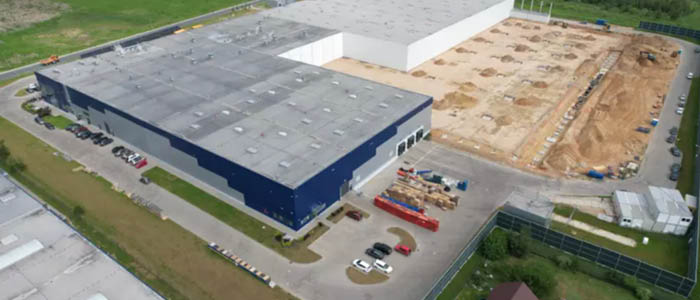E+H has promoted Arndt Blaschka to Partner.
Dentons and A&O Shearman Advise on CPIPG EUR 250 Million Partnership with Sona Asset Management
Dentons has advised CPI Property Group and its subsidiaries CPI FIM SA and Czech Property Investments on a partnership agreement to sell a 49% common equity stake in CPI Project Invest and Finance to funds managed by Sona Asset Management for EUR 250 million. A&O Shearman and, reportedly, Milbank advised Sona Asset Management. DLA Piper reportedly advised Aareal Bank on the deal.
Karanovic & Partners and LEF Advise on BIG CEE's Acquisition of Promenada Novi Sad from NE Property
Karanovic & Partners has advised BIG CEE on its acquisition of Promenada Novi Sad from NE Property. LEF Attorneys advised NE Property.
Taylor Wessing Advises PKO Bank Polski on Financing of Panattoni Park Zgierz
Taylor Wessing has advised PKO Bank Polski on the financing provided to Panattoni for the development of Panattoni Park Zgierz. Deloitte Legal reportedly advised Panattoni.
Lucie Smrkovska Becomes Group Director Legal Leasing at CTP
Former Rowan Legal Of Counsel Lucie Smrkovska has joined CTP as its new Group Director of Legal Leasing in the Czech Republic.
Energy Efficiency and Climate Neutrality in Europe’s Real Estate Sector
On 12 April 2024, the Council of the European Union adopted the revised text of Directive 2010/31/EU on the energy performance of buildings (the “Revised Directive”). The Revised Directive was published in the Official Journal of the European Union on 8 May 2024 and Member States will have to transpose it into national legislation within 2 years of its entry into force (i.e. 28 May 2024).
Wolf Theiss Advises Bob W on Entry into Austrian Market
Wolf Theiss has advised Bob W on its entry into the Austrian market via a long-term lease agreement with Viennese developer Peter Pilz & Partner Projektentwicklungs, reportedly advised by Puschner Spernbauer Rosenauer.





















